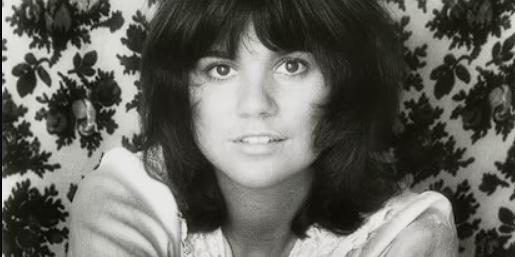Linda Ronstadt: The Voice that Echoed Across Generations
In the desert heart of Arizona, in the mid-20th century, a voice was born that would transcend time and genre. Linda Ronstadt’s story is not just one of musical talent, but of an unyielding spirit that defied expectations, shaping the soundtrack of a generation.

A Desert Girl with a Voice of Gold
The Ronstadt Family Legacy
Born in 1946 in Tucson, Arizona, Linda Ronstadt grew up in a family that breathed music. Her father, a prosperous businessman, and her mother, a lover of classical music, introduced Linda to the world of melody early on. Yet, it was her powerful voice that set her apart from the start. Surrounded by the sounds of mariachi, folk, and pop, Linda’s passion for music was nurtured within the warmth of a musical family.
Early Aspirations in Tucson
From an early age, Linda showcased her extraordinary voice, first singing in local choirs and school performances. Her love for folk music led her to join the Stone Poneys, a band that would pave the way for her future solo career. However, it was in the larger world beyond Tucson where she would truly make her mark.
Breaking Through the Industry’s Expectations
The Rise of Heart Like a Wheel
By the time the 1970s arrived, Linda had firmly planted her roots in the music world. But it wasn’t until 1974 that she truly emerged as a force to be reckoned with. With the release of Heart Like a Wheel, Linda Ronstadt found herself at the top of the charts. The album was a mixture of folk-rock and pop, but it was “You’re No Good” that catapulted her into the mainstream.
Her voice, pure and aching with emotional truth, resonated with listeners worldwide, and Linda’s success didn’t just make her a star—it changed the face of music for women in the industry.
A Genre-Bending Career
Throughout the 1970s and 1980s, Ronstadt moved effortlessly between genres. Whether she was belting out a rock anthem, crooning with Nelson Riddle’s orchestra, or harmonizing with Dolly Parton and Emmylou Harris in Trio, Linda wasn’t afraid to explore new sounds. She even returned to her roots, releasing Canciones de Mi Padre, an album of traditional Mexican songs that highlighted her cultural pride and deep respect for her heritage.
Linda’s ability to cross genres was not just about experimenting with sound—it was about connecting with different audiences through authenticity. Each song she sang felt personal, an invitation to experience life’s joys and heartbreaks through her eyes.
From Rock to Rancheras: A Genre-Bending Journey
Canciones de Mi Padre and Cultural Pride
One of the defining moments of Ronstadt’s career came with Canciones de Mi Padre in 1987. The album, a collection of traditional Mexican ranchera songs, was deeply personal for Linda. Raised in the American Southwest, her Mexican roots had always been a significant part of her identity, and this album allowed her to share this cultural legacy with the world.
Linda’s commitment to preserving her heritage was evident in her meticulous attention to the arrangements and her heartfelt delivery. Canciones de Mi Padre was not just an album; it was a tribute to a culture, a family tradition, and a love of music that transcended borders.
The Silence After the Song
Ronstadt’s Battle with Parkinson’s and Lasting Influence
In the early 2000s, Linda Ronstadt was forced to step away from the spotlight due to a diagnosis of Parkinson’s disease. The news was heartbreaking for fans and artists alike, as Linda’s remarkable voice was one of the most iconic in music history. However, even in silence, Linda’s influence continued to reverberate across generations.
She may no longer take the stage, but her voice lives on through her timeless recordings. The generations that grew up listening to her albums continue to revere her not only for her vocal ability but for her authenticity, resilience, and her role as a trailblazer for women in music.
Linda’s Enduring Legacy in Modern Music
Though her career was cut short by illness, Linda Ronstadt’s influence remains undeniable. Younger artists like Katie Lang, Sheryl Crow, and even contemporary Latin artists cite Ronstadt as a pivotal inspiration. In a time when the music industry often celebrates flash and spectacle, Linda’s quiet strength—her voice, her artistry, and her emotional depth—stands as a testament to the power of music.
Why Linda Ronstadt Still Matters
Linda Ronstadt’s career was not just defined by the records she sold or the awards she earned. It was her ability to capture human emotion and bring it to life through song that has left an indelible mark on the world. Her refusal to be boxed into one genre or label made her a true pioneer, and her voice continues to inspire musicians to this day.
Her story is one of courage and defiance—a reminder that sometimes, the strongest voices come not from those who shout the loudest, but from those who speak directly from the heart.
Linda Ronstadt may no longer grace the stage, but her legacy lives on—undiminished, unbreakable, and forever etched into the fabric of American music history.
